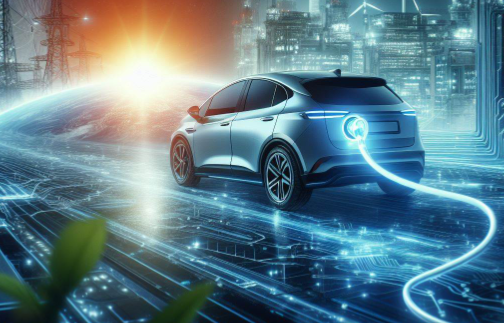The electric vehicle (EV) industry is experiencing rapid growth and innovation, driven by advancements in battery technology, government incentives, and increasing consumer demand for sustainable transportation options. As traditional automakers and new entrants alike invest in electrification, the EV market is poised for significant expansion in the coming years. In this article, we’ll explore the latest trends and innovations shaping the electric vehicle landscape.

The Rise of Electric Vehicles
Transitioning to Sustainable Mobility
Electric vehicles represent a key solution to reducing greenhouse gas emissions, mitigating climate change, and improving air quality in urban areas. With zero tailpipe emissions and lower overall carbon footprints compared to internal combustion engine vehicles, EVs offer a cleaner and greener alternative for personal and commercial transportation.
Government Support and Regulatory Initiatives
Governments around the world are implementing policies and incentives to promote the adoption of electric vehicles. These initiatives include financial incentives such as tax credits, rebates, and subsidies for EV purchases, as well as regulatory measures such as emissions standards, vehicle electrification mandates, and investment in charging infrastructure.
Recent Developments in the Electric Vehicle Market
Advancements in Battery Technology
Battery technology is a key driver of EV adoption, influencing factors such as range, charging speed, and cost. Recent advancements in lithium-ion batteries, solid-state batteries, and other energy storage technologies have led to improvements in energy density, durability, and affordability, making electric vehicles more accessible and practical for consumers.
Expanding EV Model Lineups
Automakers are expanding their electric vehicle model lineups to cater to diverse consumer preferences and market segments. From compact city cars and sedans to SUVs, trucks, and even electric motorcycles, there is a growing variety of EV options available to meet the needs of different drivers and lifestyles.
Challenges and Opportunities
Charging Infrastructure Expansion
The availability of charging infrastructure remains a critical factor in the widespread adoption of electric vehicles. Governments, utilities, and private companies are investing in the deployment of public charging stations, fast chargers, and smart grid technologies to support the growing number of EVs on the road and alleviate range anxiety among drivers.
Supply Chain Constraints and Battery Production
The global supply chain for electric vehicle components, including batteries, semiconductors, and rare earth metals, faces challenges such as raw material shortages, supply chain disruptions, and geopolitical tensions. Addressing these constraints will be essential to ensure the continued growth and sustainability of the electric vehicle market.
Conclusion
The electric vehicle market is undergoing a period of rapid transformation, driven by technological innovation, policy support, and shifting consumer preferences. With advancements in battery technology, expanding model lineups, and investments in charging infrastructure, electric vehicles are poised to play a central role in the transition to a more sustainable and environmentally friendly transportation system.